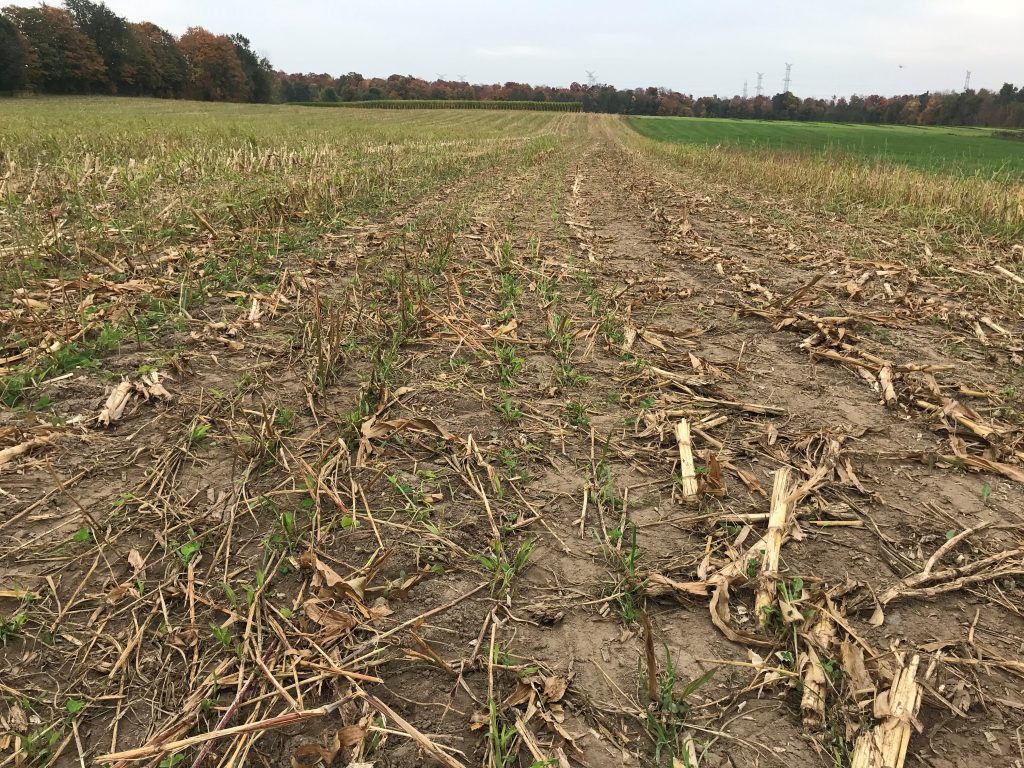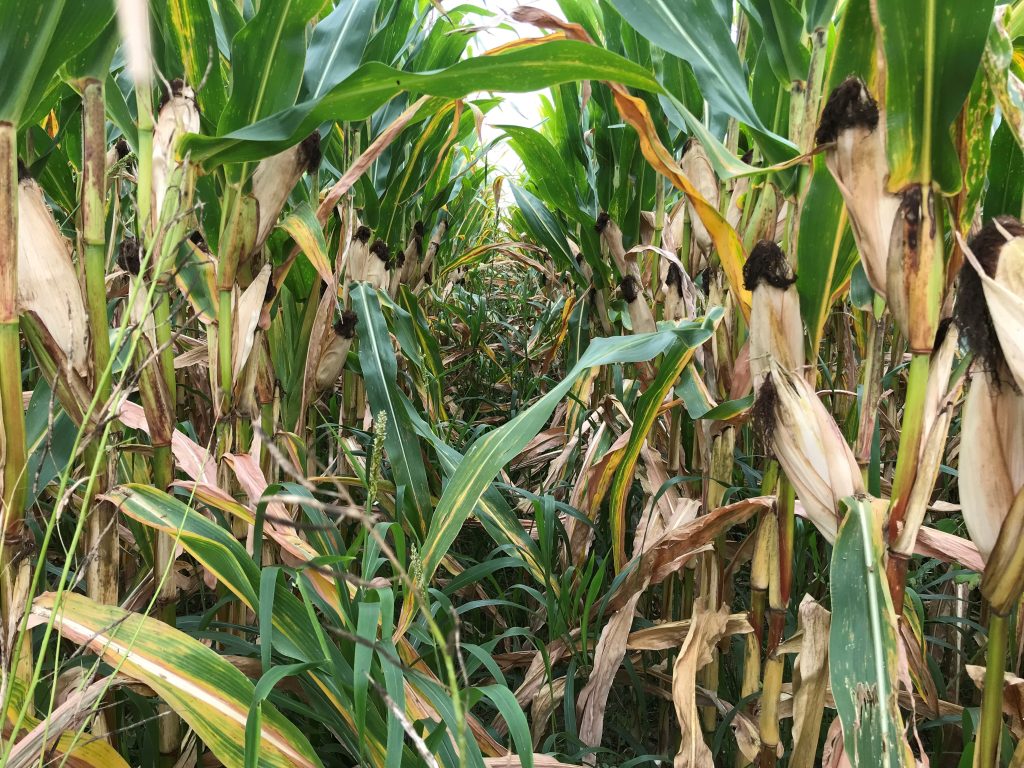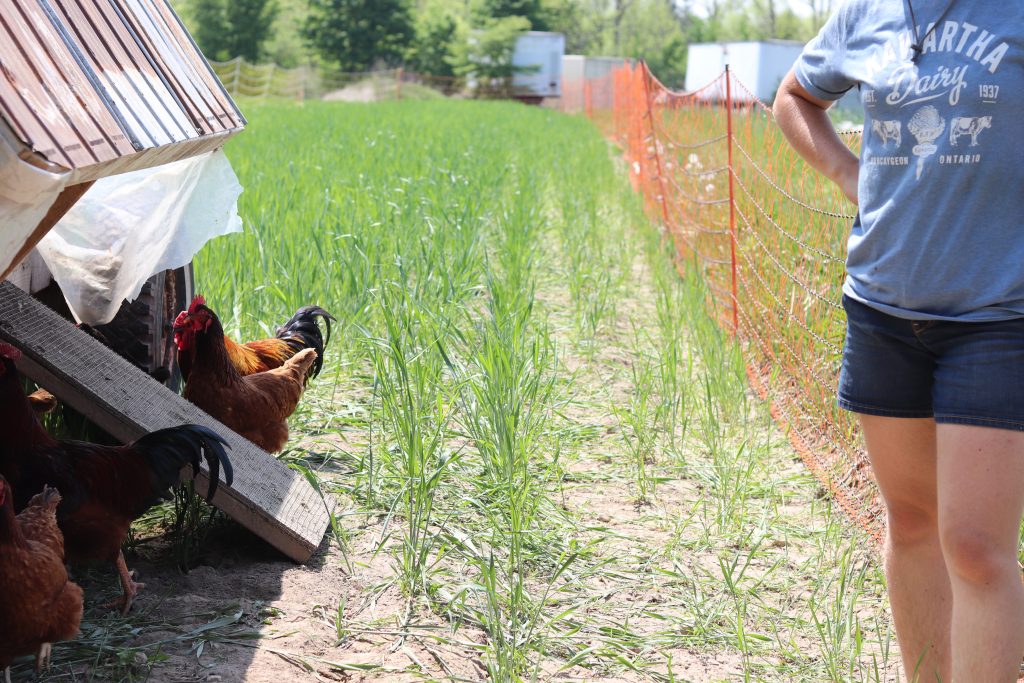By: Emily McKague, Regional Communication Coordinator for Georgian Central Region
Twenty one farms across Wellington, Dufferin and Grey counties participated in the Experimental Acres program in 2023. Farmer-led implementation of best management practices through on-farm trials were supported by their respective counties with financial backing, project monitoring and staff support.
The Experimental Acres pilot was developed as a part of Guelph-Wellington Our Food Future, a project funded by Infrastructure Canada. The County of Wellington facilitated the program in Wellington and Dufferin Counties in 2022, with Grey County joining in 2023. The program was established to create a link between the Counties and their agricultural producers, encouraging practices that align with municipal climate objectives, supporting BMP adoption in the ag industry and lessening the financial risk involved with implementing new farming practices.
Grey County took part in the program for the first time in 2023 with six farms participating. Projects included implementing multi-species rotational grazing, grazing poultry on cover crops in market gardens, assessing wool pellets as a mulch and fertilizer for plant establishment, bale grazing in high snowfall areas, integrating bison on cover crops with a field crop rotation, and interseeding cover crops in corn silage.
The program targets five key soil health principles: minimizing mechanical disturbance, keeping soil covered, maximizing biodiversity, maintaining living roots, and integrating livestock. Many municipalities have created climate action plans which identify the agricultural sector as a major greenhouse gas producer but also the key to carbon sequestration. Experimental Acres has formed a concrete connection between agriculture and government, allowing counties to directly support producers in adopting BMP practices laid out as beneficial in climate action plans. The fact that Experimental Acres runs at a county level promotes the importance of local capacity building and supports practices that are applicable to local farming conditions.

In practical terms for the farm, Experimental Acres is unique in the breadth of projects which can apply for funding. Projects that might not fit the criteria for other programs can fall into three broad categories which address ‘living roots’, ‘innovation’, and ‘integrating animals on the farm’ as project types. Within these, producers should ensure that their proposals are experimental in nature, measurable, and that the knowledge or practices could be implemented on other similar operations in the same area.
Final results have not yet been compiled for the 2023 projects, but the simple act of having trials conducted on local farms is already a win for the program.
One producer, who modified an old seed drill for interseeding a mixture of rye and clovers between rows of corn silage, spoke excitedly about the project. He had success with both the corn and cover mixture and is waiting on feed analyses to know how the cover mix affected nutritional values for his dairy herd. From there he’ll be able to make decisions on the economic viability of the experiment, and how to proceed in coming years. Adjusting nutritional content wasn’t the only goal of this project: interseeding allowed him to keep far more of the soil covered, both during the growing season and after harvest – maintaining living roots and reducing erosion at the same time. Experimental Acres helped to minimize some of the financial risk of this trial by covering the cost of the initial cover seed. With this success under his belt, the producer is keen to try other innovative practices in the future.

A second project looked at integrating laying hens into an organic market garden. The farm experimented with various cover crop types and assessed the plant growth stage best grazed by hens. Their goals were to determine which plants were most suited to act as both a cover crop and a feed source for the hens and how that suitability might change over the growing season, as well as test for changes in soil nutrient levels after grazing plots with hens. Experimental Acres provided financial support for testing multiple different crop types, as well as assistance with soil health monitoring through both qualitative and quantitative measures.

Although the program is winding down for 2023, there is hope that it will return again next year, county budgets allowing. You can find more information about Experimental Acres and its other 2023 projects at www.wellington.ca/ExperimentalAcres. If the program is approved once again, applications will likely be accepted in January, so keep your eye out if you’d like to get involved! You can also reach out directly to Jordan Grigg, the Wellington County Sustainability Program Coordinator by email: jordang@wellington.ca or by phone: 226-962-8027